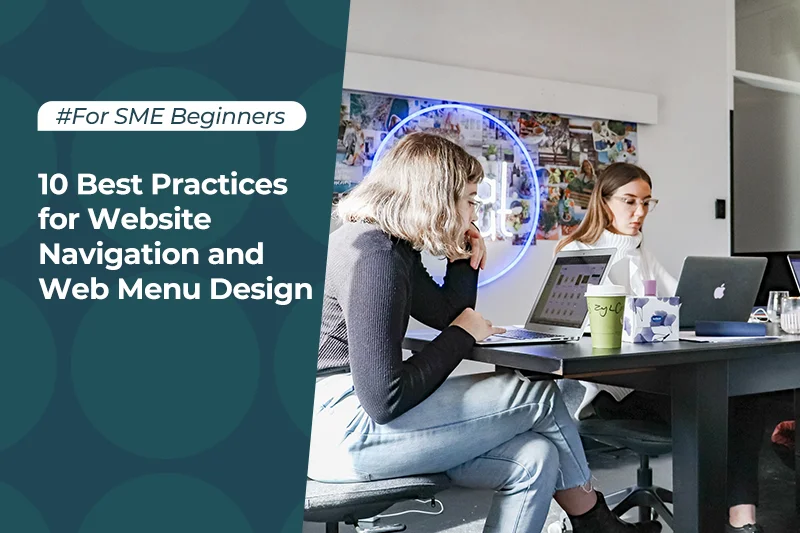15 Top Manufacturing Business Ideas to Start in 2024

If you are looking to start your own business in manufacturing but are not sure of the best idea to pursue, we’ve got you! There are a lot of manufacturing business ideas out there, so picking one might be overwhelming. In this article, we look into some of the most profitable manufacturing business ideas and narrow them down to 15 to help you pick. You will also learn more about manufacturing business definitions and how to start a manufacturing business. Let’s jump in.
Table of Contents
What is a manufacturing business?
A manufacturing business is one involved in the production of goods by converting raw materials and components into finished products. Any company that manufactures a product by hand or machine using raw materials is a manufacturing company. Raw materials could be anything from food products (rice, millet, flour) to items like wood, metal, and stone.
Many of the products we buy and use are from manufacturing. They were first raw materials before they were designed and assembled in a manufacturing company using tools, labor, and machines. There are many reasons to start a manufacturing business, including the fact that it allows the opportunity to create bespoke products, make profits, and provide job opportunities for others.
15 top manufacturing business ideas to start in 2024
Here is the list of manufacturing business ideas to guide you on your path to setting up your business:
1. Food manufacturing business
The food and beverage industry is one of the biggest industries in the world because it specializes in producing foods for consumers. This industry generates billions of dollars across the world. You can specialize in any food, like snacks, cereals, milk, canned fish, and nuts. A great way to differentiate yourself in the food industry is by specializing in specific dietary needs, such as vegan and gluten-free. One of the best things about a food manufacturing business is that you can sell through various channels. You can sell your products through grocery stores, health stores, social media, and online marketplaces.

2. Textile manufacturing
The textile manufacturing industry involves converting natural fibers like cotton, wool, silk, and linen or synthetic fibers like polyester, nylon, acrylic, and rayon into fabrics. This includes spinning, knitting, weaving, dyeing, and finishing textiles. As a textile manufacturer, you can produce various products, including clothing fabrics, upholstery, carpets, curtains, towels, and industrial textiles. To start a textile manufacturing business, you'll need to invest in equipment like spinning machines, weaving looms, knitting machines, and printing/dyeing machines. Your manufacturing facility should meet safety and environmental regulations. You'll also need to source different textile fibers as raw materials.
3. Herbal care products manufacturing
Making herbal products is a small manufacturing business that offers the opportunity to produce organic products supporting people’s health. These products are often made from botanicals and plants to maintain health or treat certain medical conditions. You can make herbal products like toothpaste, skincare, and health drinks. According to a study, up to 80% of the world population in developing countries rely on herbal products.1 In other words, there is a high demand for herbal care products, so tapping into the industry is a great business idea.
4. Candle making business
Candle-making businesses specialize in producing candles from waxes. Candles are used for different purposes, including home decor, dining, self-care therapy, and religious activities. Candle-making is perfect for creative people as it involves experimenting with different colors, shapes, scents, and designs. There are different candles you can make, like scented candles, dinner candles, votive candles, soy candles, and pillar candles. You can sell your candles via various channels like social media, a walk-in store, and online marketplaces.
One of the top-selling candle types is scented candles, which you can make from waxes, fragrance oils, and wicks. You can differentiate yourself from others by selling unique and customized scented candles that customers won’t find elsewhere. Another advantage of candle making is that you can start on a small scale and manufacture from home.
5. Papermaking
Papermaking sounds like a business many people won’t consider. But wait until you hear that this individual was valued at $352.53 billion in 2021 and expected to reach $373 billion in 2029!2 Papermaking is a big business because paper is used daily for packaging products, writing notes, or grocery shopping.

Papermaking is a process that turns cellulose fibers derived from plants into paper. Some products businesses can make through paper making include toilet paper, notebooks, paper cups, envelopes, packaging boxes, and paper carry bags. One of the great things about papers is that they are eco-friendly and can be recycled several times.
6. Pharmaceutical manufacturing
If you are looking for a professional manufacturing business idea, then a career in pharmaceutical manufacturing is a good one. A pharmaceutical manufacturing company produces medications and healthcare products while complying with strict regulations. You can specialize in producing drugs or medical products like syringes, gloves, masks, and catheters.
7. Plastic manufacturing
A plastic manufacturing business makes containers and items from plastic. This manufacturing business involves melting plastic, molding it into desired shapes, and cooling it down. Some items made from plastic are pens, freezer containers, water bottles, and disposable syringes. Depending on your budget, you can decide to focus on just one type of plastic item (like water bottles only) or multiple products.
8. Automotive parts manufacturing
The automotive part industry was estimated at 427.51 billion in 2022 and registered a CAGR of 4.0% from 2023 to 2030.3 Automotive parts manufacturing involves producing components used in vehicles like wheels, engine parts, bolts, gears, and electrical systems. Parts manufacturing is the biggest sector of the automotive sector. This is not a surprise because a single car can contain up to 30,000 parts, so manufacturers need suppliers who can manufacture some of these parts.4 Some automotive manufacturing business examples are Valeo, Magna, Denso, and Bosch.
9. Sports equipment manufacturing
Sports equipment manufacturing involves producing a variety of sports gear like balls, nets, helmets, shoes, bats, rackets, gloves, jerseys, and protective gear. In 2022, the revenue of the sports equipment industry was estimated at $17.44 billion in the US.5 You can choose to manufacture equipment for popular sports like soccer, football, basketball, baseball, tennis, and golf.
To start a sports equipment manufacturing business, you must invest in the right tools and machinery for production, like 3D printers, CNC machines, molding equipment, sewing machines, and laser cutters. You’ll also need materials like fabrics, foams, plastics, rubber, and metals. Your sports manufacturing facility should meet safety standards. As more people take up sports for recreation and fitness, the demand for quality sports gear increases. This makes sports equipment manufacturing a lucrative business opportunity.
10. Furniture manufacturing
According to Global Market Insights, the furniture industry will be over $545.78 billion in 2020 and is expected to grow with a CAGR of 5.4% between 2021 and 2027.6 Furniture making involves using wood, metal, glass, and other upholstery to make furniture that can be used in the kitchen, home, and office. The furniture manufacturing business needs to set up a workshop, get the required tools for woodworking, and employ skilled staff. Some popular furniture options for customers are chairs, tables, picture frames, and jewelry boxes.

11. Chemical production
Chemical production involves producing chemicals that various industries can use. Manufactured chemicals are used daily, from toothpaste to ballpoint pens and insecticides. One of the things you should know before starting a chemical production business is that there are stricter regulations you must adhere to. This ensures the safety of your product, customers, and employees. Chemical industries manufacture fertilizers, petrochemicals, pesticides, adhesives, fragrances, and lubricants.
12. Toy making
The toy-making industry is expected to reach $439.91 billion by 2030, with a CAGR of 4.7%.7 If you want to start making toys and games for kids, you can rest assured that the industry is profitable and worth your investment. Toy making generally involves creating entertainment for kids and ensuring they are safe to play with. Before getting into the toy-making business, you should note an increased demand for safe toys and toys that can boost children’s mental development.
13. Electronics manufacturing
An excellent manufacturing business idea is electronics manufacturing —which involves making electronic components needed for the functionality of different products. The electronics manufacturing industry is steadily growing due to increased demand in many countries. According to a study, 97% of people in the US have a cell phone.8 This shows how essential electronics are in our daily lives. A few steps are involved, including sourcing raw materials, designing, testing, assembling, and distributing.
14. Pet food and supplies
You could also look into manufacturing products for pets. The pet food industry comprises businesses that make food, snacks, and supplies for pets like dogs and cats. The pet food and supplies industry is forecasted to reach $139.29 in 2040.9 Some reasons for the increase in the demand for pet food and supplies are the humanization of pets and the increased awareness about the importance of pet nutrition. More humans treat their pets as part of the family and are willing to spend money on quality food and supplies. To start a pet food business, you will need ingredients like meats, vegetables, and grains alongside tools like ovens and mixers. You can offer pet food for cats and dogs or focus on customized pet products like gluten-free and hypoallergenic. Supplies you can offer include toys, litter boxes, and pet beds.
15. Cosmetics
A small manufacturing business you can start is cosmetics products. Cosmetics production involves creating cosmetics and personal care products like hair oils, lip glosses, eye shadows, and lashes. Cosmetics can also include soap, shampoos, hair products, and moisturizers. Generally, cosmetics are items and products needed to clean and beautify our bodies. They are made from a mix of organic and inorganic ingredients like stearic acid, dyes, oils, colors, and spices. To set up a cosmetic business, you must understand the regulations of your set of cosmetic products. Your materials and final products must comply with industry standards.
How to start a manufacturing business?
Starting your manufacturing business can be very rewarding as many growth opportunities exist. A manufacturing business is also essential for the economy as it opens up opportunities for job creation. Here are the 6 steps you should follow when starting a manufacturing business include:

1. Researching the market
Research is a critical step when starting a manufacturing business. Market research can help you better understand your industry and determine trends or customer needs. With market research, you can identify gaps in the industry, pain points of customers, and estimated costs of starting your business. After market research, setting up your business and making informed decisions that can boost your business performance will become easy. Some of the things you should focus on during market research include:
- Research your competitors, what they offer, and what you can do differently
- Find out safety and industry regulations to ensure your products are safe
- Determine the pricing system best for your products
- Research trends in the industry
2. Identifying the target audience
Who is your product for? Who will be buying your products? That is your target audience. You must identify your target audience because it will help you determine your branding and marketing strategies. When identifying your target audience, you should create a consumer persona by identifying the characteristics of your ideal customer, such as age, gender, demographics, income level, and pain points.
- Selecting a niche
A niche is the category of industry or product your business will be set in. Once you have some manufacturing business examples you would like to start; you have to figure out which niche you will fall into. For instance, to start a food business, you must decide whether to produce cereals, milk, or nut snacks. Choosing a niche helps you focus on manufacturing for a targeted group of consumers, which will help increase your business visibility.
3. Building an effective business plan
The next step in how to start a manufacturing business is writing a business plan. A business plan highlights details about your business, including your goals, marketing strategies, customer profile, operations considerations, and mode of financing. Some of the key elements you should include in your business plan include:
- Executive summary
- Market analysis
- Product
- Marketing strategy
- Financial plan
- Operations plan
4. Set up your manufacturing facility
You can start some manufacturing businesses from your home. However, some businesses require you to set up a facility in a specific location. You must also figure out the equipment, raw materials, and machinery needed to create your products. Your manufacturing facility is where the production and operations involved in manufacturing your products will occur.
5. Building your online storefront
This is where you start your operation and build a storefront to display the goods you manufacture. You can create a website to do this or take advantage of existing online marketplaces to showcase your brand. When building a storefront, remember to upload high-quality images and optimize for SEO to improve your visibility. In addition, include detailed descriptions with keywords to help people and search engines understand what you’re selling. You should also create social media accounts for your business on platforms like Facebook, Instagram, and LinkedIn.
6. Marketing your product
To make your business popular, you must market your product to your target audience. Thanks to the internet, you can promote your business in different ways, like social media, email marketing, Google Ads, website SEO, and paid ads. Learn more about some effective marketing you can leverage for your business.
You can also invest in traditional forms of advertising like billboards and TVs to promote your manufacturing business. Additionally, it would help if you looked out for trade fairs, conferences, and industry events to network with potential customers/investors/suppliers. This will generate interest in your small manufacturing business and set you up for growth.
Sell on Alibaba.com
It’s time to launch your own business in manufacturing. The ideas highlighted in this article bring high returns and are easy to start. So start market research, decide what you want to sell, start your production, and market your products.
Selling on a good e-commerce platform can also help you reach a wider audience and expand your manufacturing business. Alibaba.com is the perfect B2B marketplace to:
- Reach a global audience (over 140 billion buyers and sellers use Alibaba.com)
- Set up a storefront where you can showcase your products
- Leveraging advertising tools to reach a wider audience
- Easily accept payment and ship orders to customers
To start selling on Alibaba.com, create a seller’s account, choose a plan, and set up your storefront. Start selling on Alibaba.com today!
References
1. https://www.ncbi.nlm.nih.gov/pmc/articles/PMC3887317/#:~:text=It%20is%20estimated%20that%20up,of%20the%20culture%20in%20those
2. https://www.statista.com/statistics/1073451/global-market-value-pulp-and-paper/
3. https://www.grandviewresearch.com/industry-analysis/aftermarket-automotive-parts-market
4. https://www.toyota.co.jp/en/kids/faq/d/01/04/
5. https://www.statista.com/outlook/cmo/toys-hobby/sports-equipment/united-states
6. https://www.gminsights.com/industry-analysis/furniture-market
7. https://www.grandviewresearch.com/industry-analysis/toys-games-market
8. https://www.pewresearch.org/internet/fact-sheet/mobile/
9. https://www.grandviewresearch.com/industry-analysis/pet-food-industry
Start your borderless business here
Tell us about your business and stay connected.
Keep up with the latest from Alibaba.com?
Subscribe to us, get free e-commerce tips, inspiration, and resources delivered directly to your inbox.















